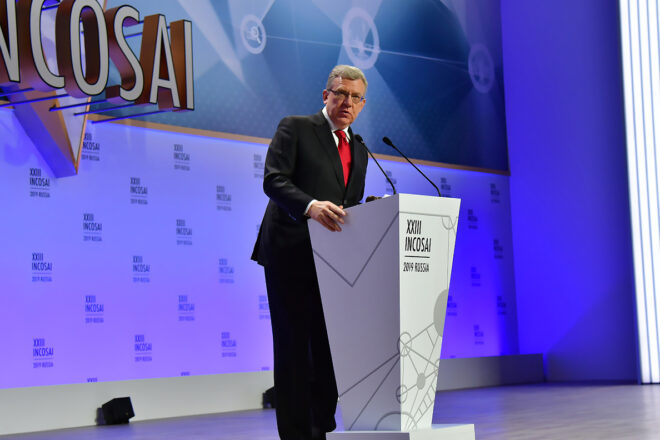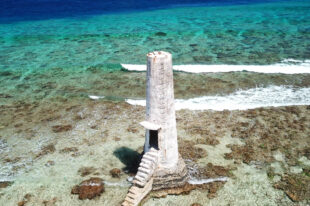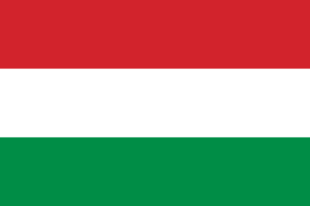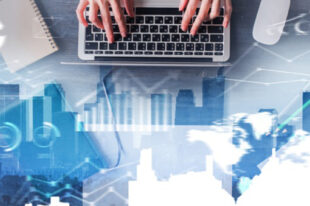The novel coronavirus outbreak has, once again, reminded us we live in a world without borders when faced with global disasters. The good news–it’s not only a matter of common problems, it’s a matter of joint solutions.
by Aleksei Kudrin, Chairman, Accounts Chamber of the Russian Federation, and Chairman of the International Organization of Supreme Audit Institutions
The Spring 2020 Edition of the International Organization of Supreme Audit Institutions (INTOSAI) Journal is dedicated to a very promising, yet quite challenging, topic: the 2030 Agenda for Sustainable Development. While the world has seen a number of development agendas, none have been fully comprehensive, proactive and inclusive.
The novel coronavirus outbreak has, once again, reminded us we live in a world without borders when faced with global disasters. The good news–it’s not only a matter of common problems, it’s a matter of joint solutions.
The 2030 Agenda set ambitious targets, particularly for the healthcare sector, objectives that include eliminating communicable diseases. To a certain extent, the Sustainable Development Goals (SDGs) have already played a role in tackling the challenge we face today. Specific indicators and benchmarks have been formed or revised giving us the opportunity to move to well-defined standards and an international indicator-based “language” to communicate and better understand the global situation. In fact, the world received tools to monitor conditions in any country and answer the question: are we doing everything possible to solve problems and achieve sustainability?
In this context, how can Supreme Audit Institutions (SAIs) contribute? We have been talking a great deal about SDG 17, which urges stakeholders from all the United Nations countries to revitalize partnerships and enhance the means for implementing sustainable development. SAIs play a part in such endeavors, providing a strategic view on governance mechanisms that can be applied to make efforts of public institutions, private sector organizations and society coherent.
Sharing knowledge to find the most effective and efficient solutions is ever relevant to achieve sustainable development–now and for generations to come.
Important results have already been achieved. In addition to auditing SDG-related spheres, SAIs have started performing specific SDG audits. Though at various audit stages (from assessing preparedness to evaluating implementation), these activities generate valuable knowledge (a resource the INTOSAI community has always been keen to share).
The most remarkable example, perhaps, is the joint INTOSAI Development Initiative (IDI)/Knowledge Sharing Committee auditing preparedness program. The program, conducted by more than 70 SAIs, addressed overarching governance matters and SDG implementation policies in various countries. Results indicate that SDG strategies, budgetary provisions or coordination mechanisms with clearly defined responsibilities have yet to be put in place by many nations. The massive experience obtained by SAIs was shared with institutions responsible for generating Voluntary National Reviews–bringing visibility to governments on identified issues and helping form joint cross-departmental mechanisms to find solutions. Program outcomes also provided the foundation for the IDI SDG Audit Model (ISAM), a framework designed to impart a sound methodological basis for SAIs conducting SDG audits.
The XXIII INTOSAI Congress held in Moscow reaffirmed the audit community’s commitment to making tangible contributions to SDG implementation. The Moscow Declaration urged SAIs to promote more effective, transparent and informative accountability for public sector outcomes, thus enhancing SAI roles in SDG achievement, which includes relevant audit-based advice on strategic parliamentary, governmental and public administration issues. A particular emphasis was placed on inclusiveness: no one should be left behind, and SAIs need to find more efficient ways to address this important aspect of the 2030 Agenda.
More than ever, using digitalization and data analytics is critical, as exploring opportunities to publish data in an open format can improve governance transparency and provide citizens with a better understanding of what works and what doesn’t. Additionally, electronic data and analytic techniques can be used to nurture the auditors of the future to efficiently use cutting-edge tools and share knowledge through peer-to-peer communication.
As INTOSAI Chair, the Accounts Chamber of the Russian Federation (Accounts Chamber) is ready to lead efforts in shaping the international audit community’s future.
We continue work on the INTOSAI University project, an online educational platform for auditors, as well as a broader, worldwide audience. I am convinced INTOSAI University will be an extremely useful tool to exchange knowledge on important topics, such as SDG auditing, particularly in conditions when hosting international meetings is not an option.
Other, more recent, joint initiatives include the first INTOSAI SDG coordination meeting held in Vienna. The February 2020 event resulted in a draft SDG Action Plan devised by INTOSAI Chair, General Secretariat, Goal Committee and IDI representatives.
We envisage all SAIs actively contributing to this plan, which contains specific SDG measures, such as finalizing the ISAM, launching an SDG information hub; and designing a unified online “SDG Atlas” that incorporates SAI SDG reports and recommendations.
The SDG Action Plan also calls for the Working Group on SDGs and Key Sustainable Development Indicators (WGSDG KSDI) to strengthen the coordination of SDG-related activities and more robustly share experiences in developing and utilizing practically-oriented evaluation instruments.
The WGSDG KSDI, chaired by the Accounts Chamber, evolved from the Working Group on Key National Indicators, a group possessing more than 10 years of experience in creating guidelines to measure progress in achieving national goals.
WGSDG KSDI work will support SAIs as strategic partners to governments in promoting SDG implementation, and its insight and experience will provide a unique opportunity to become an SDG audit competence center. The group now comprises 32 members and observers, and we invite INTOSAI member SAIs to join and contribute to initiatives that will certainly touch all corners of the world nationally, regionally and globally.
INTOSAI has established lofty goals for the years to come, and, in light of today’s challenges, we should not be tempted by any illusions we can sort everything out on our own. Sharing knowledge to find the most effective and efficient solutions is ever relevant to achieve sustainable development–now and for generations to come.






